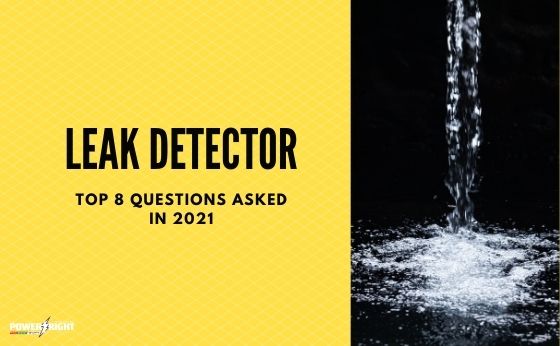
Water damage is one of the biggest threats to your house security. It can happen due to leaky pipes and appliances, including, for example, a burst hot water tank, an under-sink faucet leak, or a frozen pipe. Fortunately, now this problem is an avoidable calamity. Homeowners can use water leak detectors to monitor the flow of water passing through the pipes. Flood detectors will alert you in case they detect the presence of water. Some advanced flood alarms can even shut off your water supply. Today we are to cover the most crucial questions about water detection.
A water detector keeps a check on the flow of water through a pipeline. The device closes a valve and shuts off the water flow if abnormal behaviour is detected. When abnormal behaviour is detected, the system cuts off the water flow completely by closing a valve within the leak detector. A flood detection system can be customized according to your needs and water usage patterns. Modern leak detection systems also allow you to control the situation remotely whether you are on vacation or at work. The system can connect to your smartphone and send you a notification if the irregular water flow is detected.
A water leak happens more often than lightning, fire or burglary. Not only it is one of the most common damages to your house security, but it is also one of the most costly. Timely located water leakage prevents wastage of crucial natural resource and the money you may spend repairing your property. Besides, water leak goes hand-in-hand with mould. Mould causes serious health risks, such as asthma, allergic conditions, sneezing, eye irritation, runny noses, and skin rashes.
The leak detection system uses a mechanical turbine or ultrasonic wavelengths to monitor water flow. These systems check the pattern of the flow either by counting the amount of water passing through the sensor or by recording the delay in time.
Mechanical leak detection systems physically track the water flow. Water can run interrupted for a particular period of time. If it runs longer than expected, the smart sensor will shut off the water supply.
Ultrasonic wavelengths leak detection systems transmit ultrasonic waves to record the rate of flow. If the detector senses that the flow has exceeded expected use, the valve inside the unit will cut off the water flow.
Leakage can occur due to extreme pressures, hydraulic shock, ageing plumbing or corrosion. Hydraulic shock, also known as water hammer, can have destructive effects on your plumbing. It damages fittings and valves and causes them to fail.
Freezing temperatures make the water expand within the pipes. Thus, the extreme pressure on the pipes can cause cracks and bursting pipes.
Aged or corroded plumbing is also at high risk of developing a pinhole leak. They are especially dangerous when occurring in concealed places, such as in the basement or behind a wall.
Flood detection systems for the whole house cost about €400- €2,000. More advanced systems require professional help when installing them. Depending on the hourly rate of a plumber and the length of the installation, it may add €200-€400.
Some systems cost considerably less, although they cannot turn your water off. These water leak sensors are quite affordable, costing less than €100. You need to place them near water heaters, pipes, and other places where a leak is likely to happen. The sensors will alert you when they detect the water leak. If you use the second type of water leak detectors, there is no need for costly and labour-intensive installation as you can fix it yourself.
A flood detector should be placed at the earliest possible point of entry in your property plumbing. Water heaters and other water-using appliances should be downstream from the flood sensor. Water filtration systems should occur after the water leak detection system.
Some leakage sensors are point-of-use leak detectors. This type of sensors is usually installed under a sink. These detectors emit a loud alarm to alert the homeowners. Sometimes they also have the ability to cut off the water supply.
It is an under-sink water leak detection device that cuts off water flow if it detects the presence of water. Whole-house leak detectors protect your home from damage by monitoring the water use, whereas reverse osmosis leak detectors protect your floorboards and cabinets from excessive moisture leading to mould growth and ruined hardwood. They are mechanically simple, affordable and are merely mounted to the floorboard. Moreover, under-sink water can spill out into your bathroom or kitchen and lead to costly repairs.
Modern and sophisticated flood detection systems will require a licensed professional plumber to install and make some modifications to your existing plumbing system. Do not try to install the unit by yourself unless you have some significant experience in plumbing.
Some systems do not require any alterations to your house’s plumbing. For example, installing an under-sink reverse osmosis leak detector requires connecting the incoming water to the inlet side of the leak detector. This kind of simpler installations you can perform yourself. Remember that such leak detectors only monitor the water. They are not capable of shutting off the water.
If you want to avoid paying a massive repair bill and improve your house security, a reliable flood detector could help. These devices can alert homeowners, and in some cases stop, water leakage from becoming a serious incident. When choosing a suitable water detection system, you need to decide if you would like it to notify you of possible danger or to be able to automatically shut off the water. Whichever detector you choose, make sure to address a professional to help you install it properly.